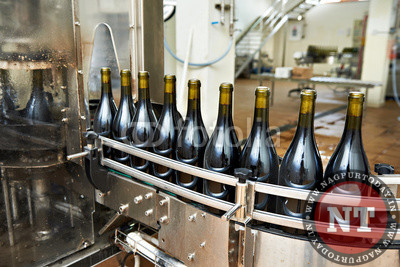
Mumbai/Nashik: Even as the wine-makers in Maharashtra, especially India’s biggest winery – Sula Vineyards Pvt Ltd, are reeling under tax dues, the BJP led state goverment has brought some cherishing news for the bigwigs in the wine industry. The government is set to write off tax arrears totalling Rs 118.30 crore owed by some of India’s biggest winemakers. The dues, proposed to be foregone, are arrears accumulated in excise duty since 2006. This is probably for the first time in the state’s history that a proposal to write off principal tax dues is being considered.
If the move is approved, the country’s biggest winery — Sula Vineyards Pvt Ltd, which alone makes up for over 65 per cent share in the domestic wine industry — will turn out to be the biggest beneficiary. Records from the state excise department reveal that Sula Vineyards alone has run into arrears totalling Rs 115.89 crore. Five other medium-sized wineries — Good Drop Wine Sellers Private Limited (Rs 1.32 crore), Seven Peaks Wineries Pvt Ltd (Rs 78.25 lakh), Vinland Wines Company Pvt Ltd (Rs 17.87 lakh), AD Wines (Rs 9.65 lakh), and Noble Wines (Rs 2.67 lakh), all in Nashik — will also benefit from the move.
Insiders informed that that the government has already issued directives to the state excise department, instructing it to formulate a proposal for the write-off. But mindful of the possibility that the move may expose the state government to criticism and attack from the Opposition, a government committee headed by Chief Secretary Dinesh Kumar Jain, which has voted in favour of the write-off, has asked the department to also seek a sanction from the state legislature.
Earlier on May 8, Chief Minister Devendra Fadnavis had formed the Jain-led committee in light of a representation from the Indian Wine Producers’ Association (IWPA), which had sought the concession. Records show that the panel submitted its findings on July 4, which has now been accepted by the government. Ironically, records show that on May 17, 2018, the Excise Commissioner’s office had approached the government, raising objections against the proposed move.
Questions are also being raised on whether the state legislature has powers to clear a proposal to forego tax dues. Requesting anonymity, a senior official in the legislative secretariat said: “It is the function of the executive branch of the government. The legislative wing does not have powers to do so.”
Maharashtra, India’s leading wine producer, has a wine promotion policy in place since 2001. As part of that, it had remitted excise duty for “wines manufactured as own brands from the grapes produced within the state” in June, 2004. But a subsequent government notification, issued on March 31, 2006, had clarified that the concession had only been extended to the first point of sale.
In other words, the notification had clarified that blending of wines where winemakers source base wines from vineyard plot or other wineries, whether situated within the state or otherwise, would attract full excise duty. With three winemakers — Sula Vineyards, Fratelli Wines, and Grover Vineyards — commanding 90 per cent share in the Rs 450-crore industry, purchasing base wine in bulk from local grape cultivators and small wineries has been on the rise in the state.
Going by the 2006 notification, a 100 per cent duty is payable by those blending wine. It was in 2011 — after an internal department audit had found that the duty was not being collected — that the government had first raised the demand for paying up of the dues. But despite repeated reminders from the department, sources confirmed that the dues remain unpaid till date.
Even during the previous Congress-Nationalist Congress Party reign in the state, wine majors had lobbied for a write-off. On July 26 this year, the Fadnavis government announced an initial dole for the industry. On the basis of the Jain panel’s recommendation, it notified that “wines blended from base wines or grape varieties sourced from vineyard plots or other wineries within Maharashtra” had now been placed in the duty-remitted category. But this is to be applied prospectively, with the committee itself observing that “applying it in retrospective manner won’t be appropriate.”
But with an influential BJP minister believed to be pushing hard for foregoing of the dues as well, the panel recommended the option of “modifying the March 31, 2006 notification” and giving a “retrospective effect” to write-off dues accumulated since 2006. To avoid this from snowballing into a controversy, the department has been directed to seek the state legislature’s sanction for it.
When contacted, Yatin Patil, president, IWPA, said: “In the event of recovery of dues, 80 per cent of the wineries would be impacted. Smaller wineries run by grape growers will be hit the most. This is why, the association has been backing a write-off.”He added: “Most small wineries lack the resources to market and brand their produce. To remain competitive, they sell their wine in bulk to bigger wineries, which blend them and later sell those as their own brand. It was only after the excise department began making inquiries in 2011 from the bigger wineries that the industry realised that the 2006 notification had also not exempted blending of wines sources from within the state.”












